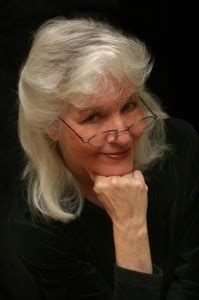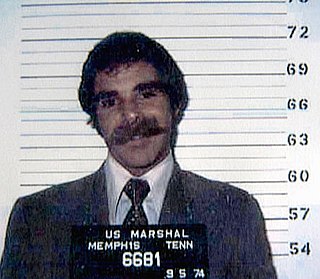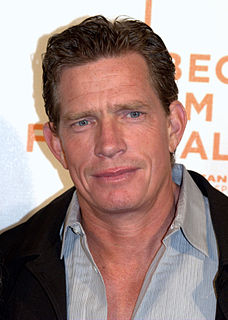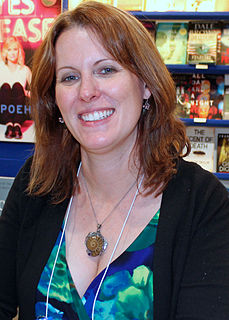Top 1048 Rooms Quotes & Sayings - Page 18
Explore popular Rooms quotes.
Last updated on December 18, 2024.
… that sour blend of loneliness and lust for recognition, shyness and extravagance, deep insecurity and self-intoxicated egomania, that drives poets and writers out of their rooms to seek each other out, to rub shoulders with one another, bully, joke, condescend, feel each other, lay a hand on a shoulder or an arm round a waist, to chat and argue with little nudges, to spy a little, sniff out what is cooking in other pots, flatter, disagree, collude, be right, take offence, apologise, make amends, avoid each other, and seek each other’s company again.
I'm an indoors person. I'm not afraid of the outdoors and I penetrate it easily and cheerfully. However, I must admit I like Central Park better than the wilderness, and I like the canyons of Manhattan better than Central Park, and I like the interior of my apartment better than the canyons of Manhattan, and I like my two rooms better with the shades down at all times than with the shades up. I'm not an agoraphobe at all, but I am a claustrophile, if you see the distinction.
Are you looking for me? I am in the next seat. My shoulder is against yours. you will not find me in the stupas, not in Indian shrine rooms, nor in synagogues, nor in cathedrals: not in masses, nor kirtans, not in legs winding around your own neck, nor in eating nothing but vegetables. When you really look for me, you will see me instantly - you will find me in the tiniest house of time. Kabir says: Student, tell me, what is God? He is the breath inside the breath.
I find it very difficult to do anything on my own now because people recognize me. This has never happened to me before because I haven't really done television before. But I suppose if you're in people's rooms all the time, I don't know - I was thinking the other night with people like DiCaprio and, you know, those big stars and Cate Blanchett, and you just think how did they exist? It's so difficult. And I think now it's very intrusive because of these cellphones, you know, with cameras.
It took my breath away, that evening. If you've ever dreamed that you walked into your best-loved book or film or TV program, then maybe you've got some idea how it felt: things coming alive around you, strange and new and utterly familiar at the same time; the catch in your heartbeat as you move through the rooms that had such a vivid untouchable life in your mind, as your feet actually touch the carpet, as you breathe the air; the odd, secret glow of warmth as these people you've been watching for so long, from so far away, open their circle and sweep you into it.
To be truthful, some writers stop you dead in your tracks by making you see your own work in the most unflattering light. Each of us will meet a different harbinger of personal failure, some innocent genius chosen by us for reasons having to do with what we see as our own inadequacies. The only remedy to this I have found is to read a writer whose work is entirely different from another, though not necessarily more like your own—a difference that will remind you of how many rooms there are in the house of art.
A "snapshot" feature in USA Today listed the five greatest concerns parents and teachers had about children in the '50s: talking out of turn, chewing gum in class, doing homework, stepping out of line, cleaning their rooms. Then it listed the five top concerns of parents today: drug addiction, teenage pregnancy, suicide and homicide, gang violence, anorexia and bulimia. We can also add AIDS, poverty, and homelessness. . . . Between my own childhood and the advent of my motherhood--one short generation--the culture had gone completely mad.
Towards the end of Coexist, we had a couple of short tours where, although we were on the road together, we weren't speaking very much. We were there to do a job, and once the show was done we'd go our separate ways to our hotel rooms. Those were some of my unhappiest moments. Stepping offstage and, within an hour, being in a hotel room alone is the most crazy feeling. I don't know how to really explain it. I felt just lost and confused. It's anticlimactic and you just feel really lonely.
Listening (had there been any one to listen) from the upper rooms of the empty house only gigantic chaos streaked with lightning could have been heard tumbling and tossing, as the winds and waves disported themselves like the amorphous bulks of leviathans whose brows are pierced by no light of reason, and mounted one on top of another, and lunged and plunged in the darkness or the daylight (for night and day, month and year ran shapelessly together) in idiot games, until it seemed as if the universe were battling and tumbling, in brute confusion and wanton lust aimlessly by itself.
I met with a bad bout after the trial was over, and while the trial was on I habit of stopping by the liquor store and buying a bottle of wine every night. Just to forget the days courtroom proceedings. Then the next morning I'd get up, go to court again and do it all over again. Well, by 1985, I was a fall down, low bottom drunk. An alcoholic. And in 1989, I finally got sober. And I found the rooms of a 12 Step Recovery Program. And I diligently worked those 12 Steps, and I have changed my life dramatically. I'm happily married. I converted to Christianity.
Once, at a seminar, I heard a Westernized lama say that a meditator's state of mind should be like that of a hotel doorman. A doorman lets the guests in, but he doesn't follow them up to their rooms. He lets them out, but he doesn't walk into the street with them to their next appointment. He greets them all, then lets them go on about their business. Meditation is, in its initial stages, simply accustoming oneself to letting thoughts come and go without grasping at their sleeves or putting up a velvet rope to keep them out.
Don't get me wrong. I like Disney World. The rest rooms are clean enough for neurosurgery, and the employees say things like "Howdy, folks!" and actually seem to mean it. You wonder: Where do they get these people? My guess: 1952. I think old Walt realized, way back then, that there would eventually be a shortage of cheerful people, so he put all the residents of south western Nebraska into a giant freezer with a huge picture of Jiminy Cricket on the outside, and the corporation has been thawing them out as needed ever since.
Now, 75 years later in an abundant society where people have laptops, cell phones, iPods, and minds like empty rooms, I still plod along with books. Instant information is not for me. I prefer to search library stacks because when I work to learn something, I remember it. And, Oprah, can you imagine curling up in bed to read a computer? Weeping for Anna Karenina and being terrified by Hannibal Lecter, entering the heart of darkness with Mistah Kurtz, having Holden Caulfield ring you up — some things should happen on soft pages, not cold metal.
When I was a kid my primary goal in life was to find a book that was alive. Not alive in the human sense, but like a thing that would send me to a place not otherwise accessible on Earth. This book should have hidden words encrypted beneath the printed ones, so that if I worked hard enough and discovered the code I would somehow end up inside the book, or the book would take on a body and consume me, revealing a secret set of rooms behind the wall in my bedroom, for instance, inside which anything could be.
I’m curious about things that people aren’t supposed to see—so, for example, I liked going to the British Museum, but I would like it better if I could go into all the offices and storage rooms, I want to look in all the drawers and—discover stuff. And I want to know about people. I mean, I know it’s probably kind of rude but I want to know why you have all these boxes and what’s in them and why all your windows are papered over and how long it’s been that way and how do you feel when you wash things and why don’t you do something about it?
I don't think that there's a target audience at all. These stories were in circulation. The stories were told by men, told in the marketplace by men, but also behind doors by women, but there's no real record of this. It's likely they were told by women to children in their interior rooms. The story could be a negative story, they could be presented as a, "Watch out! Women will get round you, do things to you, weave you in their toils." It could be buried in it an old cautionary story about women and their wiles.
Tell him solitude is creative if he is strong and the final decisions are made in silent rooms. Tell him to be different from other people if it comes natural and easy being different. Let him have lazy days seeking his deeper motives. Let him seek deep for where he is a born natural. Then he may understand Shakespeare and the Wright brothers, Pasteur, Pavlov, Michael Faraday and free imaginations Bringing changes into a world resenting change. He will be lonely enough to have time for the work he knows as his own.
I often wonder: suppose we could begin life over again, knowing what we were doing? Suppose we could use one life, already ended, as a sort of rough draft for another? I think that every one of us would try, more than anything else, not to repeat himself, at the very least he would rearrange his manner of life, he would make sure of rooms like these, with flowers and light ... I have a wife and two daughters, my wife's health is delicate and so on and so on, and if I had to begin life all over again I would not marry. ... No, no!
Passion. It lies in all of us. Sleeping... waiting... and though unwanted, unbidden, it will stir... open its jaws and howl. It speaks to us... guides us. Passion rules us all. And we obey. What other choice do we have? Passion is the source of our finest moments. The joy of love... the clarity of hatred... the ecstasy of grief. It hurts sometimes more than we can bear. If we could live without passion, maybe we'd know some kind of peace. But we would be hollow. Empty rooms, shuttered and dank. Without passion, we'd be truly dead.
But you can’t get to any of these truths by sitting in a field smiling beatifically, avoiding your anger and damage and grief. Your anger and damage and grief are the way to the truth. We don’t have much truth to express unless we have gone into those rooms and closets and woods and abysses that we were told not go in to. When we have gone in and looked around for a long while, just breathing and finally taking it in – then we will be able to speak in our own voice and to stay in the present moment. And that moment is home.
There were colored and white waiting rooms everywhere, from doctor's offices to the bus stations, as people may already know. But there were actually colored windows at the post office in, for example, Pensacola, Florida. And there were white and colored telephone booths in Oklahoma. And there were separate windows where white people and black people would go to get their license plates in Indianola, Mississippi. And there were even separate tellers to make your deposits at the First National Bank in Atlanta.
I would go into my three different sisters' rooms in the early-mid '70s and they had very specific different tastes in music. I specifically remember lying on my different sisters' bedroom floors and listening to their record collections. And "Starship Trooper" was one of my sister Nancy's favorite songs and favorite album. Music is so defining for me. In the late '70s and early '80s, I worked in radio. When I was in high school, I worked at two different radio stations.
The further he raided, the closer he came to the other rooms. Those unused, cobwebbed chambers of her heart. Would he dare to venture there? She doubted. Jumping off a cliff was a flashy sort of courage, but a man would need true strength and valor to break through those padlocked doors. There were dark, uncharted spaces within her that had been built to house love, and even she was afraid to explore them. Terrified to learn just how vast and how achingly empty they truly were.
We have had a good working relationship. He has got a tough job. We had different ideas sometimes and we got on pretty well. I have challenged him and he has challenged me. His form has been up and down and that can be tough. I suppose we've been lucky. Sourav and I complement each other. We are two different personalities. He is softer than me. I probably spoke my mind in the change rooms in a rougher way than him. Sourav and I formed an odd couple but it seems to have worked.
One of the more popular activities was “Talk-O-Matic”. Five people at a time could write messages, and read each other's messages, on the same screen. Today, Internet chat rooms work on the same principle. One of the remarkable new features of this page was that you could log in with an invented name, and pretend you were anyone you wanted - any name, any age, any gender. One favorite trick was to log in using the name of someone else already logged into the page, simply to confuse everyone else.
When oranges came in, a curious proceeding was gone through. Miss Jenkyns did not like to cut the fruit, for, as she observed, the juice all ran out nobody knew where, sucking [only I think she used some more recondite word] was in fact the only way of enjoying oranges; but then there was the unpleasant association with a ceremony frequently gone through by little babies; and so, after dessert, in orange season, Miss Jenkyns and Miss Matty used to rise up, possess themselves each of an orange in silence, and withdraw to the privacy of their own rooms to indulge in sucking oranges.
We are shut up in school and college recitation rooms for ten to fifteen years, and come out at last with a bellyful of words and do not know a thing. We cannot use our hands, or our legs, or our eyes, or our arms. We do not know an edible root in the woods. We cannot tell our course by the stars, nor the hour of day by the sun. It is well if we can swim and skate. We are afraid of a horse or a cow, of a dog, of a cat, of a spider. Far better was the Roman rule to teach a boy nothing that he could not learn standing.
Jay Harman is the quintessential biomimic, a principled inventor who sees solutions everywhere he looks in the natural world. And he looks deeply, with the soul of a student. He moves with grace from a world of waving sea kelp to the world of sustainable design, bringing nature's wisdom into the board rooms of global companies, to the design tables of the engineers and designers who make our world. This is more than a business book, more than a memoir, more than a new way to solve global challenges. It's a book about a new way to think.



























